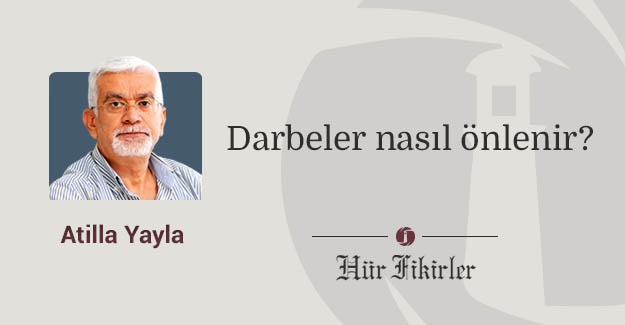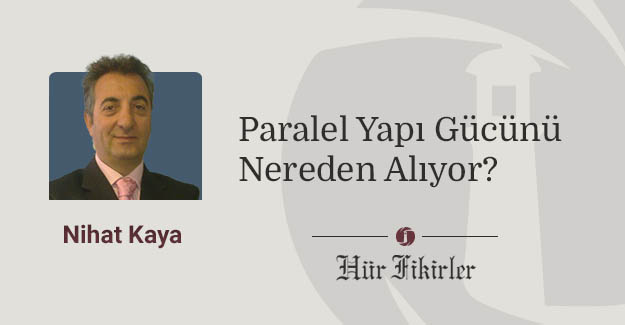September 1961. Geneva, Switzerland. A Turkish classmate of mine named Turgut burst into my room, crying, ‘those bastards just hanged my father!’
The ‘bastards’ in question were Turkey’s generals. They had overthrown the civilian government of Adnan Menderes and hanged my friend’s father. Since, then, the mighty Turkish armed forces has tried to overthrow the government about every ten years.
Last weekend’s military coup in Turkey was the fifth coup since the 1960’s. Many had believed the mighty, 610,000-man Turkish armed forces, backed by 379,000 trained reserves, NATO’s second largest forces after the US, had finally been driven back to its barracks by the popular democratic AK party government of President Recep Tayyip Erdogan.
So it seemed until last Friday when tanks seized the two Bosphorus bridges in Istanbul, and attacks were staged against key targets, like TV stations, the intelligence HQ, and government buildings. Five very senior generals and 25 colonels were reportedly at the core of the uprising.
A special commando team was sent to capture or, more likely, kill President Erdogan who was vacationing at the seaside resort, Marmaris. He managed to escape minutes before the plotters struck. A number of his bodyguards were killed. Erdogan boarded a small plane and flew to Istanbul as two rebel F-16 jets were hunting his black-out aircraft. The president and his military loyalists rallied troops and the air force. It was all eerily similar to the 1991 coup attempt on the vacationing Soviet leader, Mikhail Gorbachev, by hardline Communists.
Turkey and its predecessor, the Ottoman Empire, have been vexed by military meddling and plots since the 1600’s, notably by the elite military corps, the Janissaries.
Today’s Janissary are the modern Turkish armed forces. They have long been joined at the hip with the Pentagon. Like Latin America’s generals, Turkey’s pashas (generals) were far to the right, hidebound, and reliant on US finance and arms. Turkey’s pashas were also virulently anti-Muslim. They regarded Islam as backwards and a threat to the secular oligarchy that long ruled Turkey under successive military juntas.
The coup leaders believed they would have popular support. Far from it, throngs of Turks poured into the streets supporting Erdogan’s AK party and calling the insurgents traitors. Five Turks were run over by tanks after they sought to stop the rebel armor with their bodies.
The government squarely blamed the prominent Sufi religious leader, Fethullah Gulen, who lives, of all places, in rural Pennsylvania. Gulen runs a vast and shadowy religious-business-education empire that has a very large following across Turkey that included leading newspapers, academia and many in the military.
Gulen was a close ally of Erdogan, but they fell out and became bitter enemies. Gulen was close to the US and often sided with Israel. His exile in the US was reportedly engineered by the CIA.
This has led many Turks to accused Washington of trying to overthrow Erdogan by using the military and Gulen – which the US denies.
Adding yet more mystery, the Turkish commander of Incirlik airbase in eastern Turkey was a key coup plotter. Incirlik is used by the US Air Force for Mideast operations.
The F-16 pilot who downed a Russian SU-24 bomber last year, sparking a huge crisis with Moscow, has been arrested in the coup dragnet. Could the ambush of the Russian warplane have been part of a plot to embarrass and undermine Erdogan? Looks like it.
Furthermore, the coup reminded the world that the US keeps 50-60 B-61 thermonuclear bombs at Incirlik. These H-bombs could have fallen into the hands of the rebels. What purpose do these Cold War antiques serve today?
Back to the coup. It was not just the work of the Gulenists, as Turkey’s government claims. There’s a whole other aspect to the coup: the hard right, Europeanized secularists who regard 1930’s Islam-hating military dictator, Kemal Ataturk, as a demi-god and state religion. They joined the army generals in overthrowing Turkey’s past governments, keeping the nation unstable, chaotic and afflicted by financial crises.
Last weekend’s coup was a joint effort by the secular old guard and the Gulenists to reverse history. Unable to defeat the wildly popular Erdogan at the polls, they keep resorting to violence.
Two previous plots to overthrow Erdogan, known as Ergonikon and then Sledgehammer, nearly succeeded. Turkey’s judiciary, academia, media were riddled with Gulenists and rightist secularists. Generals involved in these plots were exonerated by courts. The government ended up in a 40-year ongoing civil war within its own ranks. That’s why nearly 60,000 anti-government officers and civilians are being purged. A third of all generals are being fired or retired.
The west’s response to the crisis was disgraceful.
Instead of immediately supporting Turkey’s besieged democratic government, Washington, London, Paris and Ottawa all issued only lukewarm, half-hearted support. President Erdogan is not liked, particularly by the US. He is a Muslim, too independent-minded, insufficiently response to American demands in spite of his support for the anti-ISIS war in Syria and Iraq. Perhaps worst of all, Erdogan is sometimes critical of Israel over its repression of the Palestinians.
As a result, leading US neocon papers, like the Wall Street Journal, Washington Post, and NY Times drip with venom over Erdogan. CNN’s coverage of the coup was astoundingly biased and nasty, worthy of the old Pravda. The anti-Erdogan neocons began spreading the ludicrous canard that the coup was a false-flag operation staged by the Turkish leader himself. It was the real thing. Even Turkey’s opposition parties sided with Erdogan’s AK.
Erdogan is hardly perfect. He is often too authoritarian and made a mess in Syria. But his triumph in protecting Turkey’s hard-won democracy should be lauded and strongly supported by his NATO allies, starting with the US – which was quick to support the brutal military coup in Egypt. Time for Washington to come clean on its murky links to Gulen.





